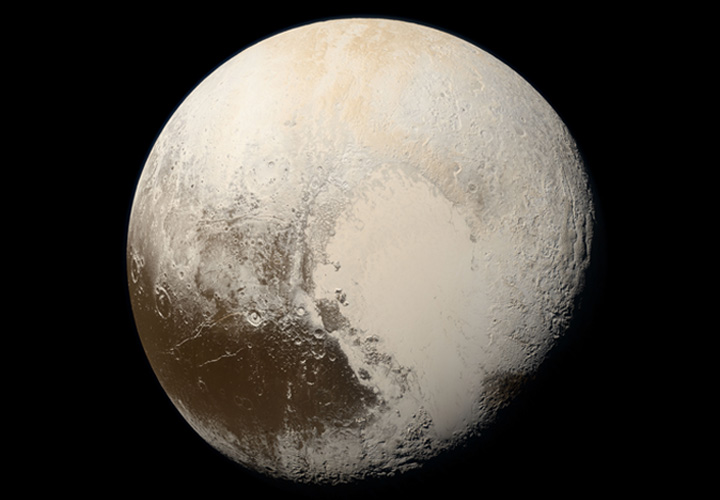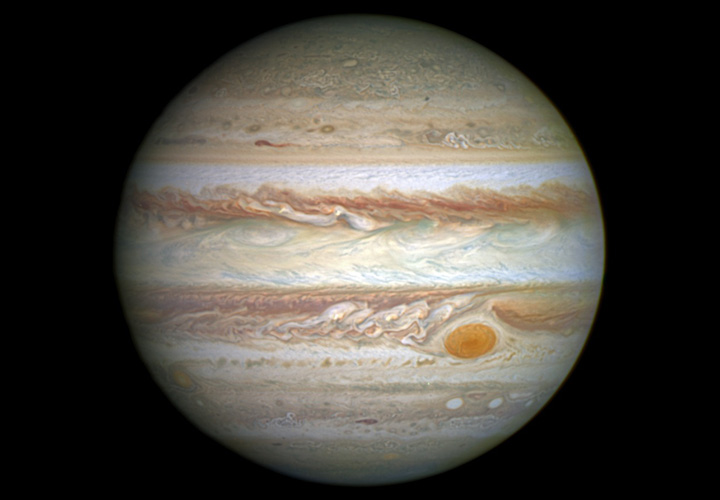15 Facts about Pluto: The Demoted Dwarf
Pluto ( ♇ , प्लूटो ) was once a planet but thanks to the discovery of Eris, it was demoted to the status of a dwarf planet. This tiny ball in space was just recently pictured from a short distance for the first time. This Flyby mission revealed many characteristics of this demoted planet. Here are some interesting facts about the ex-planet with a heart, Pluto: Pluto is the largest known Plutoid Tombaugh’s task was to systematically image the night sky in pairs of photographs, then examine each pair and determine whether any objects had shifted position. After the observatory obtained confirmatory photographs, news of the discovery was telegraphed to the Harvard College Observatory on March 13, 1930 The final choice of name was helped in part by the fact that the first two letters of Pluto. These are the initials of Percival Lowell, a wealthy Bostonian…
134340 pluto accrete amazing apparent magnitude article ashes atmosphere AU awesome axis bulge charon clyde tombaugh collisions core cronus demoted density dwarf planet dysnomia earth ecliptic elon musk energy equatorial eris extrasolar planets Facts flyby galaxies Galileo galilei giant god gravity harvard college observatory haumea helium hydra hydrogen iau iau resolution ice asteroid interesting isro jove jovian kerberos kuiper belt liquid water magnetic field makemake mass metallic hydrogen methane milky way minerva minor planet moon moons mountains mteorite mythology nasa nebula neptune new horizons ninth nitrogen ice nix oblate percival lowell planetesimals planets pluto plutonium polar premordial pressure protoplanets radiation radius religion rings roman rotation science solar solar system space spacecraft spacex spheroid storm styx sun tesla three conditions underworld uranus venetia burney volume warmer atmosphere water
15 Facts about Uranus: The Icy Misfit
Uranus ( ⛢ , अरुण ) is the Solar System‘s weirdo. Let it be its featureless look, mysteriously low temperature or excessive tilt, it is unlike any other planet. This far from home icy planet has its own amazing set of quirks. Here are some interesting facts about Uranus, the icy misfit: Uranus is the Latinized version of Ouranos Sir William Herschel announced its discovery on 13th March 1781, but he assumed it was a comet. By 1783, he acknowledges that his discovery is, in fact, a planet Appendix: Classical Planets The interior of Uranus is mainly composed of ices and rock. Uranus and Neptune are known as the Ice Giants This could be because of the low heat generated by the planet Neptune, which is Uranus’ near twin in size and composition, radiates 2.61 times as much energy into space as it receives from the Sun.…
13 49k 97 degree accrete Aerial alexander pope amazing ammonia apparent magnitude article atmosphere AU awesome axis bulge classical planets cold coldest planet collisions comet core density earth elon musk energy equatorial extrasolar planets Facts featureless ferris wheel freezing galaxies Galileo galilei giant god gravity greek helium hydrogen ice asteroid ice giants interesting internal heat isro jove jovian latinized magnetic field mass metallic hydrogen methane milky way Miranda misfit moon moons mteorite mythology nasa nebula neptune oberon oblate ouranos pale cyan disk planetesimals planets pluto polar premordial pressure protoplanets quirks radiation radius religion rings rocks roman rotation science seventh shakespeare sideways solar solar system space spacecraft spacex spheroid storm sun tesla tilt titania unbril uranus volume voyager 2 water weirdo william herschel
15 Facts about Jupiter: The King of the Gods
Jupiter (♃ , बृहस्पति) is the giant of our Solar System. Not only Jupiter is very huge, its gravitational force also helped in sculpting the structure of the Solar system, as we see today. First of the giant planets, Jupiter is a mammoth ball of gas with many striking features. Here are some interesting facts about Jupiter, the giant of the giants: Jupiter is the fifth planet from the Sun and the largest in the Solar System Roman god Jupiter is also called Jove which is the reason behind the name Jovian planets. ‘Jovian planets’ is the other term used for ‘Giant planets’ Jupiter’s upper atmosphere is about 88–92% Hydrogen and 8–12% Helium by percent volume of gas molecules Jupiter’s rotation is the fastest of all the Solar System‘s planets But like the other giant planets, Jupiter lacks a well-defined solid surface Astronomers have…
accrete amazing apparent magnitude article asteroid belt asteroids atmosphere AU aurorae awesome axis belts brown dwarf bulge callisto cassini collisions core density dust earth eddy currents elon musk energy equatorial europa extrasolar planets Facts galaxies galilean Galileo galilei ganymede giant god gravity great red spot helium hydrogen ice asteroid interesting io isro jove jovian jupiter jupiter mass king magnetic field Mars mass metallic hydrogen milky way moon moons mteorite mythology nasa nebula new horizon oblate pioneer 10 planetesimals planets polar premordial pressure protoplanets radiation radius red dwarf religion rings roman rotation saturn science Simon Marius sky solar solar system space spacecraft spacex spheroid star storm sun super earths tesla thunder trojan asteroids volume voyager water


